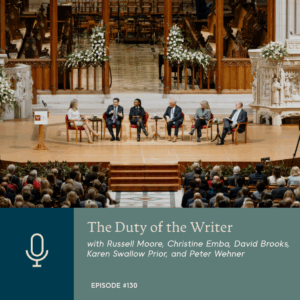[vc_row row_padding_bottom=”30″][vc_column][textbox title=”Conflict and Conversations on Science and Faith” title_color=”#2f2f2f” title_fontsize=”40″ text_under_align=”center” subtitle=”Cherie Harder” subtitle_color=”#757575″ content_align=”center”][/vc_column][/vc_row][vc_row][vc_column width=”1/6″ css=”.vc_custom_1547644032611{margin-top: 20px !important;border-top-width: 0px !important;padding-top: 10px !important;padding-right: 10px !important;padding-bottom: 10px !important;padding-left: 10px !important;background-color: #eeeeee !important;border-top-style: solid !important;}”][imagebox image_url=”14483″ image_hover=”disable”][/vc_column][vc_column width=”5/6″][vc_column_text]
Monday, November 14, 2011
The past several years have seen an intensifying of a long-running conflict between the claims of science and faith. Debates over our origins, the reliability of the Bible and the scientific record, and the proper realms of authority of faith and science have generated more heat than light, with some finding their faith severely strained by perceived pressure to choose between scientific evidence and religious teachings.
Even within Christian universities, there is a marked absence of consensus on what constitutes orthodox Christian teaching concerning both the scientific record on the origin of our species and the theology of Genesis.
And while there has been much in the way of heated argument over these topics, few opportunities exist for interdisciplinary conversation. So next week, the Trinity Forum will host a pilot forum at Harvard University using its new curriculum on “Science, Faith and Truth” to encourage conversation among scientists, humanities scholars, and ministry leaders on the relationship between scientific and spiritual knowledge – and to better equip them to think.
Our intent is not to argue in favor of a particular view of our origins, nor to assault scientific findings, but to explore different forms of knowledge, the interaction between them, and the implications for engaging questions of ultimate reality. As we note in our new curriculum: “Contemporary science-and-religion debates are not ultimately about science. They are about the premises of science. And here we can find profound differences over fundamental questions. What is real and true? How do we know truth and reality?
Materialists reject any possibility of real knowledge from religion. Those who acknowledge spiritual realities, by contrast, assert only that the knowledge science can provide is limited in its scope. In fact, as the philosopher Dallas Willard reminds us, there is nothing to which the word “science” applies except particular sciences, and none of the sciences have anything to say about God one way or the other.”
We hope that this Forum will continue to open new avenues to consider and engage a topic of extraordinary importance, and encourage an ongoing conversation that is marked by a search for truth, a respect for the various kinds of knowledge, and an abundance of grace.
Cherie Harder
President
[/vc_column_text][/vc_column][/vc_row]


